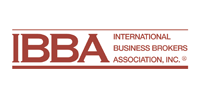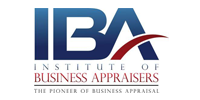- Deal Structuring
- Negotiating
- Introductions
- Valuation
- Analysis
- Financing Assistance and Strategy
- Market Sector Evalution
- Post-Deal Integration
Due Diligence – Disclosure Directions
Before making a decision to purchase a business, a buyer should understand his or her objectives to make sure those objectives can be met by purchasing any or a particular business. Most relevant surveys reveal similar responses and, interestingly, making money is not at the top of the list. Here is a list of the typical answers, in the order of importance:
- To control my own future.
- To work for myself.
- To take advantage of my skills and abilities.
- To make money.
2. Should I start my own business or buy an existing one?
An existing business has a historical track record (good or bad) which can be used to evaluate the business. An existing business has usually shown there is demand for its products or services, and it should have, among other things, detailed financial records. Sometimes, a seller will agree to stay with the business and help to train a new owner and to provide seller financing. These are important factors because many small businesses tend to fail during the early stage of their development. On the other hand, there can also be disadvantages to buying an existing business. A buyer will be assuming an established corporate culture and infrastructure which may make implementing changes more difficult. Also buyers will generally have to pay a premium for an existing business.
3. What should I be looking for in a business?
A buyer should only consider a business he or she will feel comfortable owning and operating. The time and effort which will be required is an important consideration as is how much the buyer can afford to pay for the business. The amount of cash the buyer hopes or needs to regularly take out of the business is very important, especially if the business is to be the buyer’s only source of income. Because many experts believe you should not purchase a business unless you can make it better, it is helpful if a buyer has some definite ideas on how to improve the purchased business.
4. Why is confidentiality so important to the seller?
Typically, confidentiality is very important to a seller. It can be damaging to a business if it is known that it is for sale. Customers may not be interested in buying from a business that is up for sale, competitors could use the information to their advantage, and employees generally experience anxiety and often leave.
5. How is the asking price of the business determined?
Sometimes the seller’s business broker will review the financial records of the business and make a recommendation about the price. Other times, the seller will obtain a professional valuation of the business. Sometimes, the deal structure is more important than the financial status of a business in determining the actual selling price. As an example, the cash to be paid and the availability of seller financing are important determinants. All other things being equal, typically, a greater cash requirement and/or lack of seller financing will lead to a lower selling price.
6. Should I hire an attorney?
Yes, it is a good idea to retain an attorney to review the necessary legal documents. Although most businesses already use any attorney, it is important that the attorney you hire be familiar with business acquisitions to be as effective as possible during the process.
7. What is due diligence?
Due diligence is a systematic process for acquiring and analyzing information to help a buyer or seller to determine whether or not to proceed with a proposed business transaction. The information obtained relates to all aspects of the business to be purchased. Due diligence should include both quantitative information, such as sales and other financial data, and qualitative information, such as an assessment of the existing management, internal systems, existing licenses, location and other matters. Sometimes the information to be reviewed can be quite technical or industry specific. It is important that the person doing due diligence have a complete understanding of the information being reviewed.
8. During the due diligence process, what are some significant warning signals, and what should I do about them?
The seller has:
- Imposed an unrealistic time frame for the transaction.
- Withheld key information.
- Limited access to information and people.
- Provided unclear or biased reasons for selling.
- Presented information that is significantly misleading or false.
- Displayed a lack of commitment to remain after the sale.
If these signals are present you should:
- View them as real warnings of increased risk to the transaction.
- Increase the amount and extent of due diligence procedures to ensure a realistic assessment of the business.
- Determine whether to invest more time investigating the opportunity or to simply pass on the deal.
9. What are the main reasons for the failure of a business after it’s bought?
- The price paid was significantly over market value.
- The due diligence procedures were not adequate.
- A previously dependent asset was unable to function/survive without support (i.e. sales to related parties or below market debt).
- A change in business environment created unexpected problems.
10. How much cash do I need in order to purchase a business?
In most cases, a portion of the total consideration paid for a business is paid in some sort of deferred payment – whether in the form of a seller note or payments contingent on the performance of the business. Third party lenders are also available to make acquisition loans. Therefore, a cash investment of 1/3 to 1/2 of the purchase price may be sufficient to complete a transaction, depending upon the financeability of the transaction.
11. Where can I obtain financing to help me buy a business?
There are a variety of sources available for purchase financing. These range from a typical commercial lending source to asset-based lenders and seller financing. The availability of outside financing will depend upon the asset base of the business, its operating history, collateral availability and projected cash flow – the same issues considered in all business lending. Seller financing is also an option. In this case, the seller of the business takes back a promissory note for part of the value of the company. Seller financing may be a good indication of the seller’s faith in the continuing operations of the business. The SBA and the is a helpful resource when trying to determine what type of financing is available.





